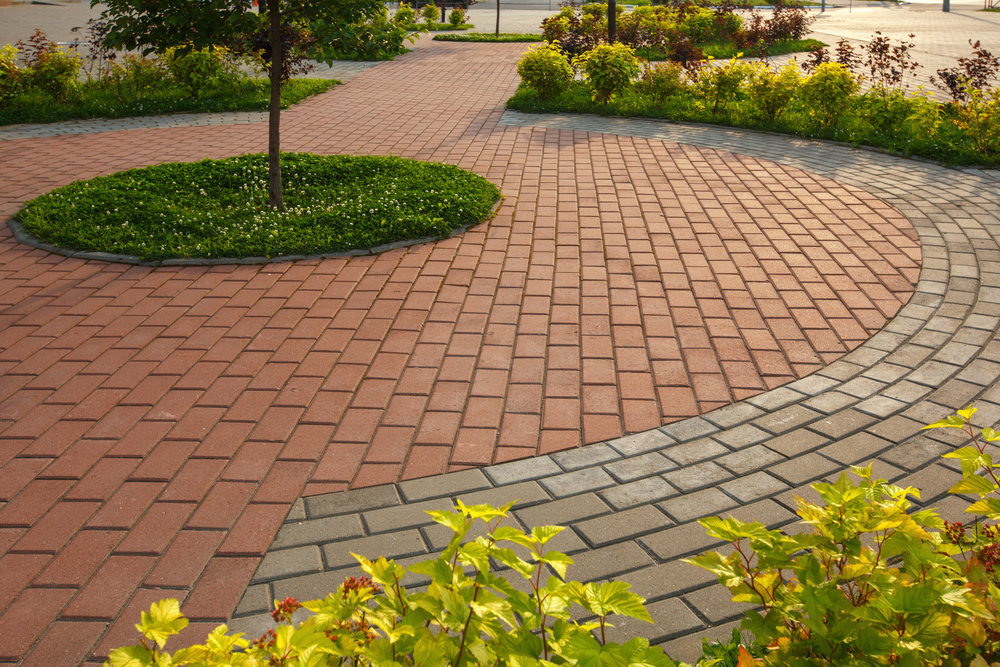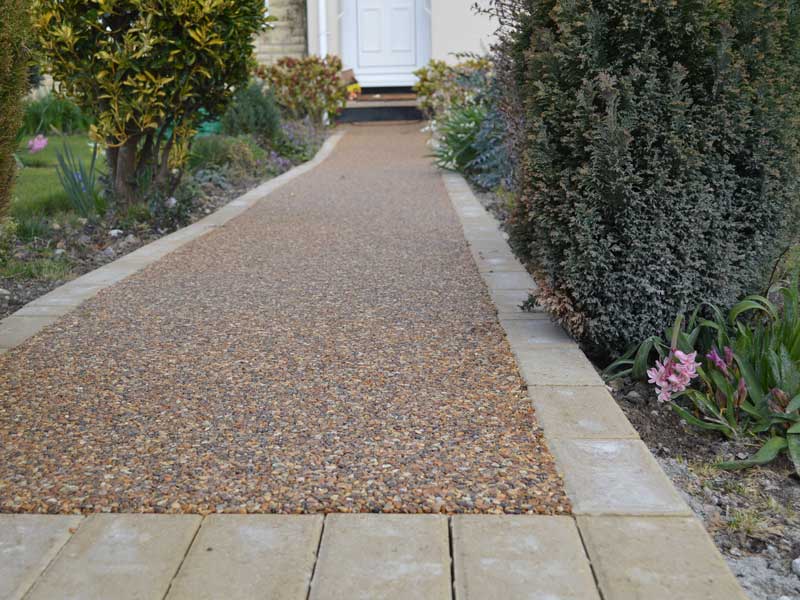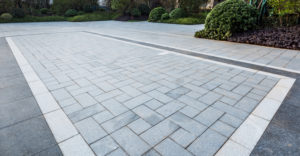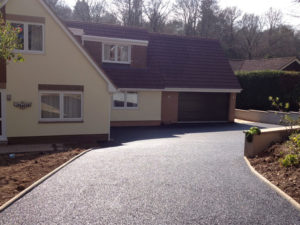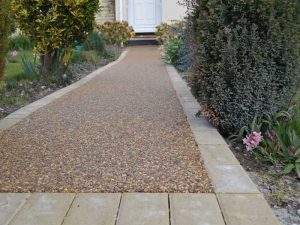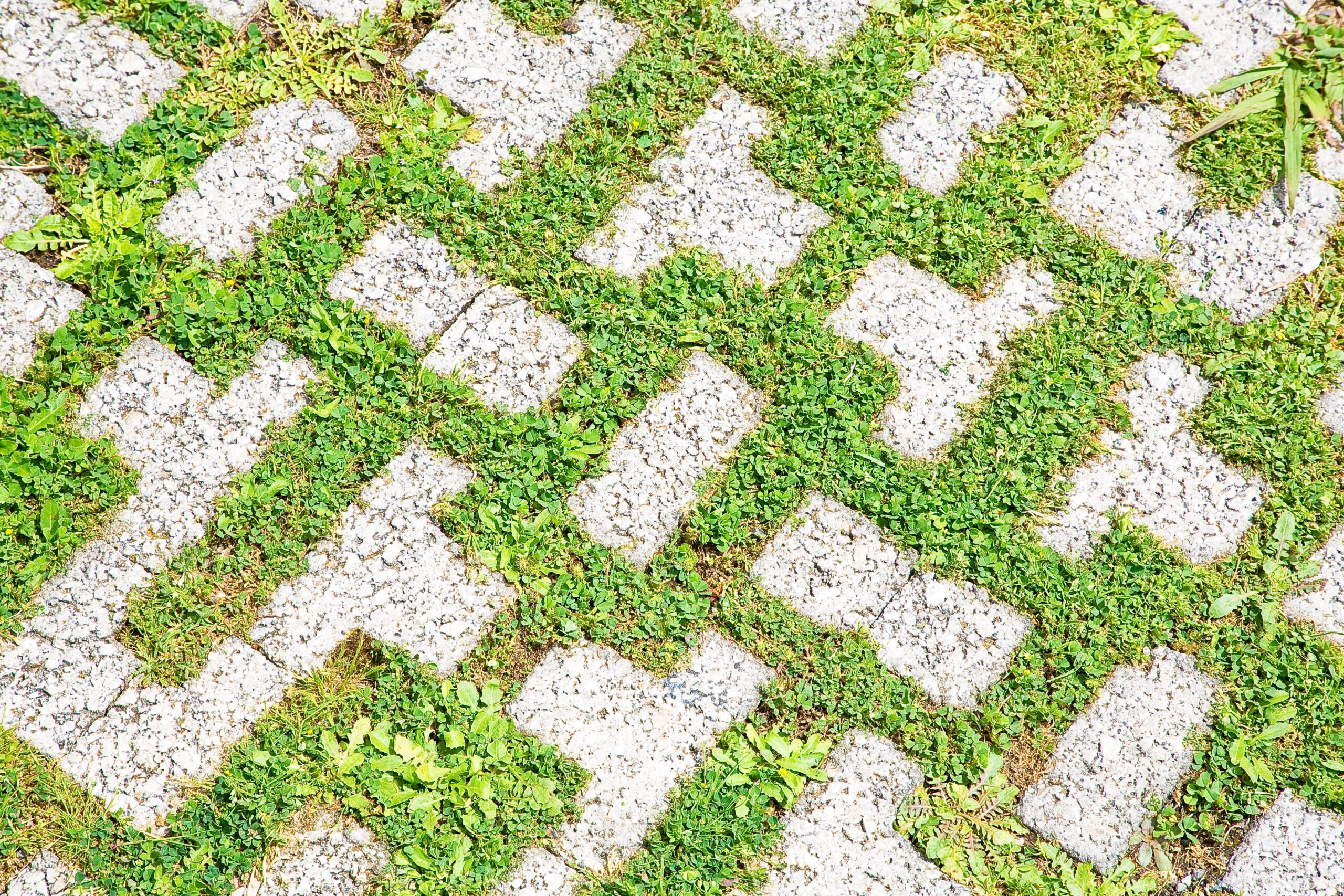Nov
How to Choose the Best Driveway Materials for Your Home
- 2025
- admin
Introduction: Choosing the Best Driveway Materials for Your Home
Your driveway plays a big role in your home’s appearance, durability, and value. Choosing the best driveway materials isn’t just about looks, it’s about finding a surface that performs well, suits your lifestyle, and fits your budget.
Homeowners across the UK often choose between tarmac, block paving, resin-bound, and gravel surfaces. Each has distinct benefits, costs, and maintenance levels. In this guide, we’ll help you understand which option could be the best driveway material for your property.
1. Tarmac Driveways: A Classic and Cost-Effective Choice
When it comes to reliable, hard-wearing driveway materials, tarmac is a top contender. It’s been a go-to surface for decades and remains a favourite across Devon, Dorset, and Somerset for its practicality and price.
Pros
- Affordable: One of the most cost-effective driveway materials to install.
- Durable: Handles heavy vehicles and daily wear with ease.
- Low Maintenance: Simple to repair and easy to clean.
- Weather Resistant: Performs well in the UK’s variable climate.
Cons
- Limited Design Options: Fewer colour and style choices compared to resin or block paving.
- Heat Sensitive: Can soften in extreme heat.
- Requires Skilled Installation: Poor preparation can lead to cracks or puddles.
2. Block Paving: Stylish and Versatile Driveway Design
If you’re comparing tarmac vs block paving, aesthetics are where block paving wins. This option allows homeowners to design unique patterns, creating a premium look that complements any home style.
Pros
- Customisable: Wide choice of colours, patterns, and finishes.
- Easy Repairs: Individual bricks can be replaced if damaged.
- Enhances Kerb Appeal: Adds value and visual appeal to your property.
Cons
- Cost: Typically more expensive than tarmac or gravel.
- Maintenance: May require sealing and regular weeding between joints.
- Drainage: Needs proper sub-base preparation to avoid water pooling.
👉 Explore our Block Paving Solutions for stunning and durable driveways.
3. Resin-Bound Driveways: Modern, Seamless, and Low Maintenance
If you want a contemporary and long-lasting driveway, resin surfacing could be the best driveway material for you. Its smooth, seamless finish offers both style and performance.
Pros
- Attractive Finish: Creates a polished look with a range of aggregate colours.
- Permeable: Allows rainwater to drain naturally — ideal for eco-conscious homes.
- Minimal Maintenance: Resistant to weeds and cracking.
- Durable: Lasts up to 20 years when installed correctly.
Cons
- Installation Cost: Slightly higher initial investment.
- Colour Fading: May lighten over time with UV exposure.
- Professional Installation Required: DIY kits rarely achieve the same quality finish.
👉 Learn about our Resin Surfacing Services for sleek, modern driveways.
4. Gravel Driveways: Traditional and Budget-Friendly
When comparing resin-bound vs gravel driveways, gravel stands out for its rustic charm and affordability. It’s a great choice for countryside homes and large driveways.
Pros
- Low Cost: One of the cheapest driveway materials available.
- Natural Drainage: Gravel is naturally permeable, reducing surface water.
- Quick Installation: Can be laid efficiently with minimal groundwork.
- Traditional Appeal: Offers a classic look that suits rural properties.
Cons
- Maintenance: Needs regular raking and topping up.
- Loose Stones: Can scatter onto pathways or roads.
- Weed Growth: Without proper membranes, weeds may appear.
5. Comparing the Best Driveway Materials: Quick Overview
| Material | Durability | Appearance | Maintenance | Permeable | |
| Tarmac | ★★★★☆ | ★★☆☆☆ | Low | No | |
| Block Paving | ★★★★☆ | ★★★★★ | Medium | Partial | |
| Resin | ★★★★★ | ★★★★★ | Low | Yes | |
| Gravel | ★★★☆☆ | ★★★☆☆ | High | Yes |
Every material offers its own blend of benefits. If you’re looking for durability and value, tarmac or resin are excellent choices. For a decorative finish, block paving is ideal. For a low-cost, traditional surface, gravel remains popular among UK homeowners.
6. Factors to Consider When Choosing the Best Driveway Materials
When deciding on the best driveway materials for your property, consider these factors:
- Budget: Resin and block paving cost more but last longer and enhance appearance.
- Aesthetic Goals: Choose materials that complement your home’s style.
- Traffic Levels: Tarmac and resin are better for high-traffic or multi-car driveways.
- Drainage Needs: Permeable options like resin or gravel are ideal in wet climates.
- Maintenance Preference: If you want minimal upkeep, tarmac or resin surfaces are best.
7. Which is the Best Driveway Surface for Your Home?
When comparing tarmac vs block paving or resin-bound vs gravel driveways, the right choice depends on your priorities.
- For affordability and durability, tarmac is ideal.
- For style and sophistication, block paving stands out.
- For modern, low-maintenance appeal, resin is unbeatable.
- For traditional charm on a budget, gravel is a timeless choice.
At Dares Surfacing, we help homeowners across Devon, Dorset, and Somerset choose the best driveway materials to enhance their property’s appearance and performance.
Conclusion: Create Your Perfect Driveway with Dares Surfacing
Selecting the best driveway materials for your home is about balancing beauty, function, and value. Whether you prefer the sleek finish of resin, the character of block paving, or the strength of tarmac, each option offers something unique.
At Dares Surfacing, our experienced team provides professional installation and expert guidance on all types of driveways UK homeowners love.
👉 Contact Dares Surfacing today to discover the best driveway materials for your home and get a free, no-obligation quote



